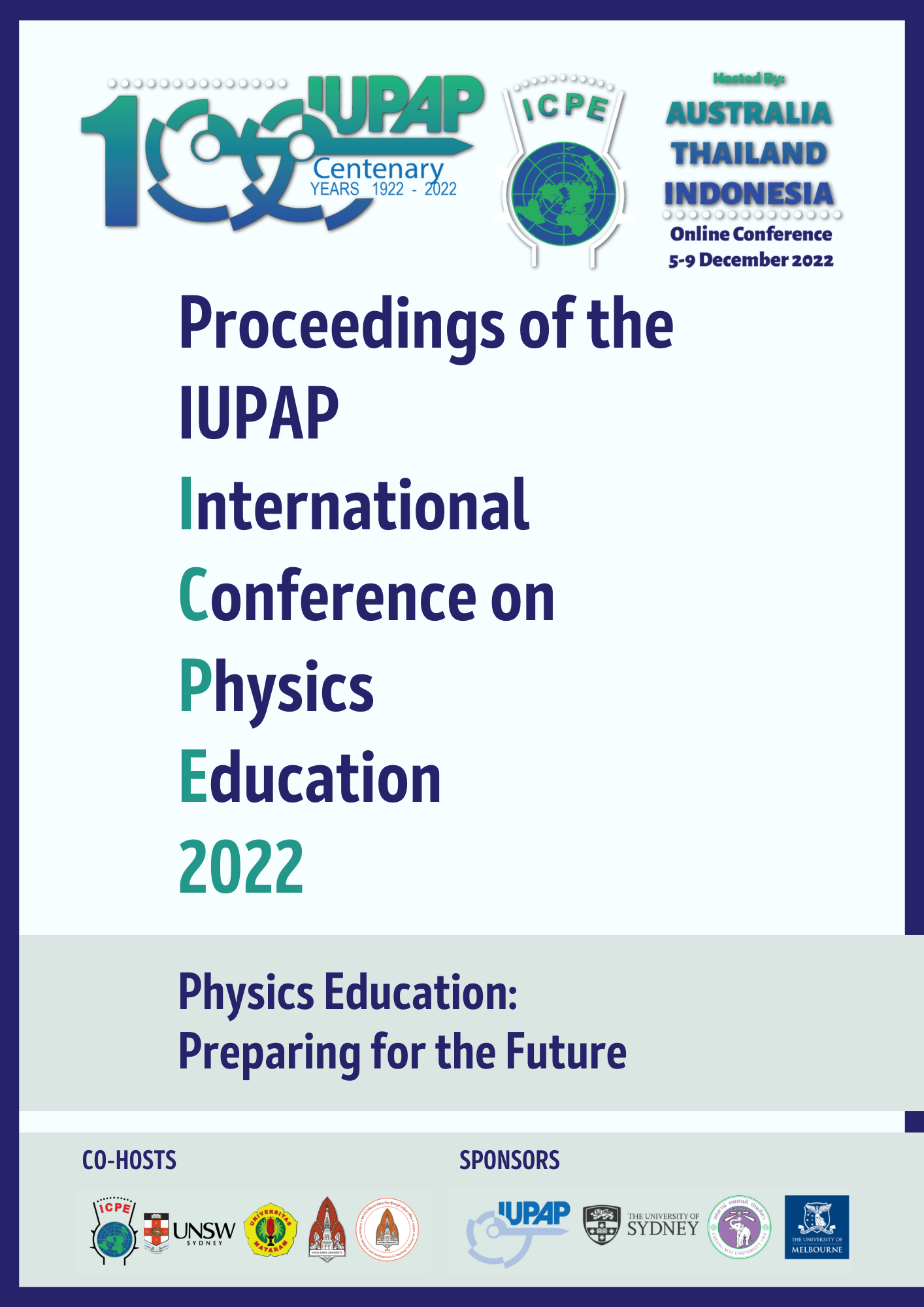Online laboratory
Keywords:
online laboratories, uncertainty, procedural understandingAbstract
Many studies have indicated the loss of learning in the experimental part of the curriculum during the pandemic situation. Many universities started exploring various alternatives like simulations, sending experimental kits to students, and providing images and videos of experimental procedures to compensate for the lack of availability of laboratories. Though students could explore and collect data using these alternatives, it is imperative that they understand the reason behind adopting these procedures (procedural understanding) and the choice of instruments. Unless deliberate efforts are made to convey these aspects, students might develop an inadequate understanding of these aspects of the experiment.
Therefore, we designed our online laboratory (https://shirishpathare.com) with the specific purpose of helping students to develop some of these experimental reasoning skills. Our methodologies for designing and implementing these experiments were based on a modelling framework (Dounas-Frazer & Lewandowski, 2018) and model making - model breaking approach (Vonk, Bohacek, Militello & Iverson, 2017). In the modelling framework, students have to develop empirical models and troubleshoot any discrepancies that they encounter in this process. With the help of the model-making and model-breaking approach, students can devise different data collection and data analysis procedures for video and simulation experiments.
The experiments designed for our online laboratory were (1) Diffraction of light using one-dimensional diffraction grating, (2) Repulsion between two magnets, and (3) Angular speed of a ceiling fan. These experiments were given to the students in two national-level online camps. In the first camp, we interacted with the students of the Indian Physics Olympiad program, and in the second camp, we worked with post-graduate women students from different universities in India. In both the camps, students were initially provided with some orientation about aspects of procedural understanding. Later, we gave them the three online experiments and asked them to attempt them individually.
In each of these experiments, information related to the apparatus was provided through descriptive text. Videos and images of the experiment were given. During the data collection, measurements of the corresponding variables were to be carried out within specified levels of uncertainty. Based on this, students had to accordingly devise their measurement procedures and choose the appropriate measurement apparatus. We expected them to use their knowledge and understanding, possibly developed through the preliminary orientation, for the data collection and data analysis process.
Students were asked to submit their data in a specific format and respond to questions in a Google Form. These responses and the submissions helped us to probe their knowledge with respect to their procedural understanding skills. From their responses, we could see that students had used their own reasoning to make their choices about variables, measurement procedures, and analysis methods. Students’ responses were discussed in detail in another session with them. Later, students provided feedback about this new open-ended way of performing an experiment. In this presentation, we discuss the design and implementation of our experiments along with students’ responses.
REFERENCESDounas-Frazer, D. R., & Lewandowski, H. J. (2018). The modelling framework for experimental physics: Description, development, and applications. European Journal of Physics, 39(6), 064005.
Vonk, M., Bohacek, P., Militello, C., & Iverson, E. (2017). Developing model-making and model-breaking skills using direct measurement video-based activities. Physical Review Physics Education Research, 13(2), 020106.
Downloads
Published
Issue
Section
License
Authors who publish with the Proceedings of the International Conference on Physics Education 2022 agree to the following terms:
a) Authors retain copyright and grant the journal right of first publication with the work simultaneously licensed under a Creative Commons Attribution License (https://creativecommons.org/licenses/by/4.0/) that allows others to share the work with an acknowledgement of the work's authorship and initial publication in this journal.
b) Authors are able to enter into separate, additional contractual arrangements for the non-exclusive distribution of the journal's published version of the work (e.g., post it to an institutional repository or publish it in a book), with an acknowledgement of its initial publication in this journal.
c) Authors are permitted and encouraged to post their work online (e.g., in institutional repositories or on their website) prior to and during the submission process, as it can lead to productive exchanges, as well as earlier and greater citation of published work (See The Effect of Open Access - http://opcit.eprints.org/oacitation-biblio.html).
Privacy Statement The names and email addresses entered in the Proceedings of the International Conference on Physics Education 2022 site will be used exclusively for the stated purposes of this journal and will not be made available for any other purpose or to any other party.
